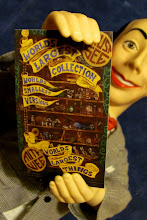In his essay, The Empire of the Ugly, the great Belgian Sinologist and literary essayist Simon Leys recounts the story of how, writing one day in a café, a small incident gave him an insight into the real nature of philistinism.
A radio was playing in the background, a mixture of banal and miscellaneous chatter and equally banal popular music. No one in the café paid any attention to this stream of tepid drivel until suddenly, unexpectedly and inexplicably, the first bars of Mozart's clarinet quintet were played. "Mozart," Leys says, "took possession of our little space with a serene authority, transforming the café into an antechamber of Paradise."
The other people in the café, who until then were chatting, playing cards, or reading the newspaper, were not deaf to the radio after all. The music silenced them, they looked at each other, disconcerted. "Their disarray lasted only a few seconds: to the relief of all, one of them stood up, changed the radio station and re-established the flow of noise that was more familiar and comforting, which everyone could then properly ignore."
Here is the conclusion that Leys draws:
At that moment, I was struck by an obvious fact that has never left me since: that the real philistines are not those people incapable of recognizing beauty—they recognize it only too well, with a flair as infallible as that of the subtlest aesthete, but only to pounce on it and smother it before it can take root in their universal empire of ugliness.





No comments:
Post a Comment